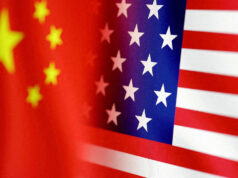Senate panel calls for review of oil deregulation
THE Senate energy committee has backed the Energy department’s call for greater transparency in the pricing of petroleum products by proposing a review of the oil deregulation law, after a court blocked the agency’s circular that required oil companies to “unbundle” fuel prices.
“Matagal na rin ang (It’s been a while since the passage of the) oil deregulation law so it’s about time to revisit [it]. Again, the promise of the oil deregulation law is more competition will lead to lower prices. We should also analyze whether that promise is being achieved right now,” Senator Sherwin T. Gatchalian, chairman of the Senate Committee on Energy, told reporters after a hearing on electric vehicles on Wednesday.
Asked about when he plans to file a resolution calling for a review of Republic Act No. 8479 or the Downstream Oil Industry Deregulation Act of 1998, he said: “Siguro mga (about) one month from now.”
Mr. Gatchalian was reacting to a court issuance of a writ of preliminary injunction against Department of Energy (DoE) Secretary Alfonso G. Cusi, who was respondent to a case filed by Petron Corp. questioning the legality of DoE Department Circular No. DC2019-005-008.
“To rectify that, what we are discussing internally is to revisit the oil deregulation law and to incorporate there transparency, kasi ang punto naman ng (because what is being pointed out by the) DoE is transparency,” he said.
Mr. Gatchalian said the DoE would want to know whether the industry players were hoarding or were deliberately not selling oil when prices increase.
“They want to also understand whether the industry take is beyond reasonable terms although you can argue that is a deregulated and private endeavor but we also need to understand the dynamics of industry take,” he said, referring to the price mark up for each seller of fuel products.
“But the bottom line is that there is transparency,” he added.
He said although the industry is deregulated, oil is a “vital” industry that could dictate the operation of vehicles, airlines and sea vessels.
“Government should know exactly the operations and the inventories of the oil companies,” he said.
On Tuesday, Mr. Cusi said the DoE will continue to look for ways to keep consumers informed about what goes into the prices of petroleum products, after a court blocked the agency’s circular that it hoped would provide greater transparency.
“I’m not happy,” DoE Secretary Alfonso G. Cusi told reporters after the release of the writ of preliminary injunction issued by Branch 213 of the Regional Trial Court of Mandaluyong City that sided with petitioner Petron Corp.
He said the other ways for the DoE to determine the pricing of fuel products would include the importation of petroleum by a unit of state-led Philippine National Oil Co. or the company itself.
Separately, the Philippine Competition Commission (PCC) plans to review the DoE circular although it was non-committal whether it would proactively come up with a stand on the matter.
Kenneth V. Tanate, PCC executive director, said oil unbundling is generally good for consumers as it would promote transparency and make them more informed on what they are paying for. — Victor V. Saulon



